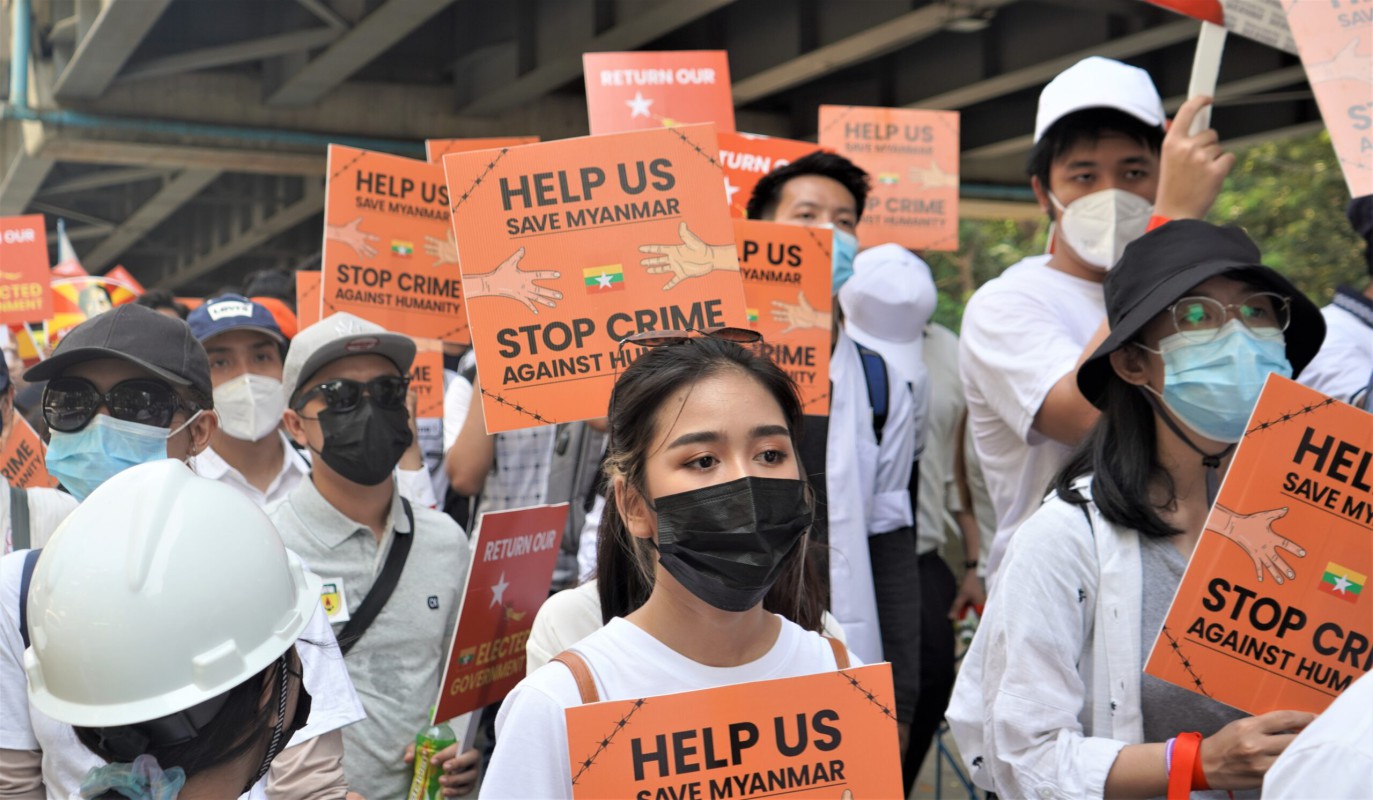Myanmar 2024: A year of political ups and downs

863

By Phyo Lin Aung (NP News) - Jan 9
The year 2024 has truly been a year of ups and downs for Myanmar's politics. While some sectors experienced success, both the government and the people have faced significant losses. Political instability, economic challenges, and ongoing conflicts have greatly affected the lives of many. The hope for peace and development continues to be challenged, and it remains uncertain how Myanmar will recover from the hardships of this year.
A Year of several losses
Throughout the year 2024, Myanmar has been engulfed in flames of war, with only a few peaceful towns left standing. This situation has primarily arisen from ethnic armed groups taking advantage of the political instability, launching attacks from all sides against the Tatmadaw, and striving to seize control of territory. The Tatmadaw, in turn, has been focused on suppressing the PDF terrorists from the very beginning, working to implement its established roadmap. As a result, the country has suffered significant and costly losses.
Additionally, many of these armed groups consist of ethnic minorities, who are also citizens of Myanmar. Because of this, the Tatmadaw has sometimes exercised restraint, using limited force in certain battles to avoid further alienating the civilian population. In some instances, the military has allowed some towns to remain untouched, refraining from heavy attacks on these groups.
The MNDAA (Myanmar National Democratic Alliance Army), TNLA (Ta'ang National Liberation Army), and AA (Arakan Army) are armed ethnic groups engaged in conflict with the Tatmadaw. The Myanmar government and several international entities classify these groups as insurgent or terrorist organizations due to their use of armed force to challenge the state's authority. Their actions, including in operations like the second wave of Operation 1027, have contributed to significant instability and violence, impacting both civilians and government control. Towns like Lashio, Mogok, and much of Rakhine State have been captured and controlled by these groups. Their pursuit of autonomy or recognition poses a direct challenge to the government's authority, exacerbating the broader instability in Myanmar.
Furthermore, PDF (People's Defense Force) terrorists have contributed to the destruction of public infrastructure and have engaged in acts of extreme violence. Innocent civilians, including monks, nuns, and even well-known celebrities, have been threatened, attacked, or killed. The brutal killings of individuals under the label of “Dalan” serve as stark examples of the PDF's extremist actions. Additionally, they have targeted prominent figures such as actor Yan Aung, singer Yone Lay, and celebrity Phyu Phyu Htwe with bomb threats and hateful statements, demonstrating the PDFs' reckless acts of extremism. These actions have only intensified the suffering of the people and further destabilized the country.
Such ethnocentric groups and PDF terrorists' actions have significantly disrupted the stability of the country. Despite the government's efforts to promote peace, including inviting all armed groups to engage in political dialogue, the response from these groups has been far from positive. The government has shown genuine intent to address the armed conflicts through political means, yet these armed factions have demonstrated no sincere willingness to engage in meaningful negotiations. As a result, the path to peace remains slow, and the prospects for a peaceful resolution seem distant.
Myanmar on the global stage in 2024
Myanmar's presence on the international stage in 2024 was marked by significant developments, particularly its strengthened ties with China. The most notable event was the Myanmar leader's diplomatic visit to China in November 2024, where he met with Chinese Premier and other senior officials. This visit was seen as a major diplomatic achievement for Myanmar. In addition, the Chinese Foreign Minister visited Myanmar in August, offering support to the Myanmar government in its efforts to address the internal crisis. These events underscore China's growing relationship with Myanmar and its role in providing diplomatic backing during a period of internal instability.
India also played a role in Myanmar's affairs in 2024, though its efforts were not as significant as China’s. India invited Myanmar delegations from political parties and ethnic groups that had signed ceasefire agreements with the government to participate in a Federal Lecture series. Through these discussions, India aimed to explore potential solutions to the ongoing armed conflicts in Myanmar. While India's involvement showcased its interest in helping address Myanmar's internal challenges, its influence in resolving the crisis remained limited compared to other international players like China.
In the ASEAN arena, Myanmar had recognized as a political representative again in 2024. ASEAN become more focus on Myanmar issue in this year and it highlight to engage with all including parties in order to solve Myanmar crisis.
Similarly, Myanmar's neighbouring countries, such as Thailand, have also shown concern and offered support regarding the ongoing crisis. Thailand's assistance and consideration for Myanmar's challenges reflect the region's collective interest in maintaining stability. Additionally, Myanmar's long-time ally, Russia, did not remain absent in providing help this year, particularly during the flooding disaster. Russia's support during this difficult period highlights the enduring diplomatic ties between the two countries and its role in offering humanitarian assistance amidst Myanmar's internal challenges.
These events illustrate the significant ups and downs Myanmar experienced in 2024. Moving forward, it is hoped that the Myanmar government will work towards peacefully resolving these issues in the coming year. Additionally, there is hope that Myanmar can maintain and strengthen its relations with its allies in 2025, fostering a more stable and prosperous future. –